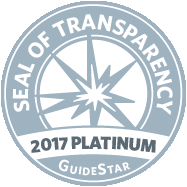Staff Spotlight: Samrawit Solomon, WEEMA’s Gender and Disability Mainstreaming Program Officer
WEEMA Wednesday, August 28, 2019
Based on her experiences and interests, it isn’t surprising that Samrawit Solomon is leading WEEMA’s Gender and Disability Mainstreaming work.
Her first exposure to WEEMA was volunteering on its first Cataract Campaign in 2015, an annual effort to restore vision to hundreds of Ethiopians blinded by deterioration of the lens in their eyes. Growing up in the Oromia Region in southwest Ethiopia, she also saw firsthand the painful discrimination that disabled people experience, especially girls and women.
“Gender-based violence is common in Ethiopia and it’s especially common with women who are physically disabled,” the 31-year-old says. For example, she knew of a physically disabled woman in her hometown who was raped and became pregnant. “She was too embarrassed and frightened to tell anyone.”
Such memories left an indelible impression on Samrawit, who grew up in Jimma, where educational and health services were sparse, clean running water was rare, and opportunities for girls and women were bleak.
Samrawit overcame these hurdles to graduate with a college degree in sociology and a master’s degree in business administration in Addis Ababa. She also has extensive work experience in community development and as a social worker.
Her calling was always to help others – and when the opportunity came up to work at WEEMA she jumped at it. Earlier this year, she assumed her new post leading WEEMA’s Gender and Disability Mainstreaming work. She also became a first-time mother.
“All of WEEMA’s interventions are very crucial for the community, but, as a mother of a child, my biggest interest goes to health and to women’s empowerment as an independent and decision-making woman,” she says.
In her new position, she is responsible for ensuring that all of WEEMA’s projects – on clean water, medical care, education, and economic empowerment – are creating comparable opportunities for women and the disabled. That means building wheelchair-accessible ramps in new libraries. It means creating jobs for women in male-dominated occupations such as beekeeping. It means upgrading schools and training staff so that disabled students can attend and thrive.
Samrawit says the work can be challenging. But the rewards are far bigger.
“I love that WEEMA tends to work with the most deprived part of society,” she says. “I love that it has a holistic and community-led approach.”
Samrawit teaching primary school girls about gender equality












